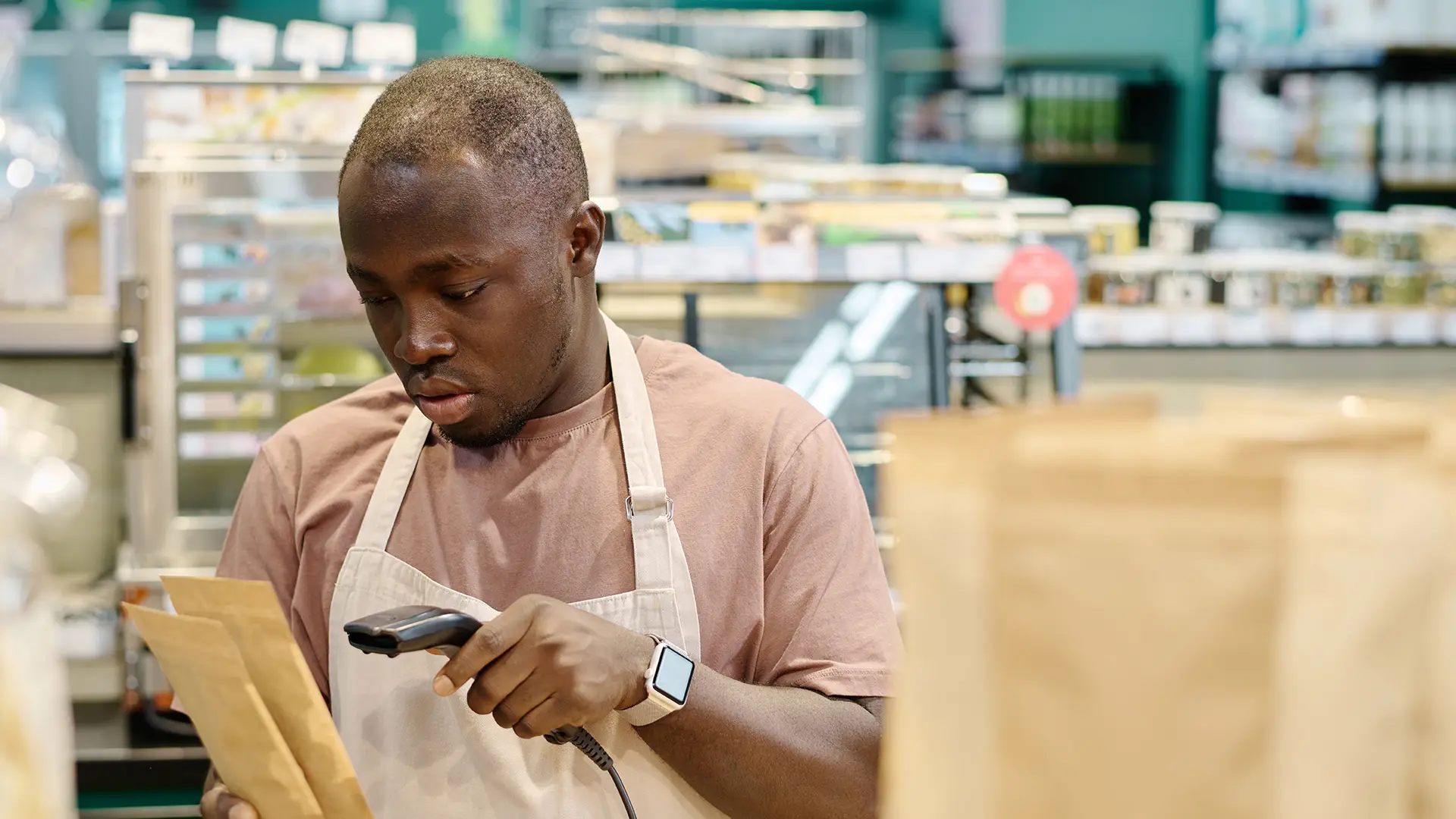Trending: Here are some Business Statistics and Trends to know

The retail industry is undergoing a profound transformation as it adapts to rapidly changing consumer behavior and the top retail trends shaping the retail landscape.
In 2025, understanding these top retail trends is more critical than ever for retailers aiming to maintain a competitive edge. Retail media is playing a pivotal role, enabling retailers to reach their target audience more effectively and enhance brand loyalty through personalized and data-driven marketing strategies.
The retail sector is shifting towards offering more personalized and immersive shopping experiences, focusing heavily on customer satisfaction and loyalty to drive retail sales. To remain relevant in this dynamic environment, companies must continuously adapt to these top retail trends and evolving consumer expectations.
Let’s take a look!
Understanding Consumer Behavior
Consumer behavior in 2025 is shaped by several key drivers, including convenience, sustainability, and the desire for unique and engaging shopping experiences. Younger consumers, especially Gen Z and millennials, are at the forefront of these changes, driving the growth of social commerce and influencing broader consumer trends.
These shoppers expect seamless delivery services, flexible delivery options, and real-time inventory visibility that allow them to shop on their terms. Additionally, consumer spending habits are shifting towards online shopping and experiential retail, where the customer journey itself becomes an engaging event that shapes overall experiences and brand loyalty.

Emerging retail trends and economic shifts directly impact shoppers by influencing their purchasing decisions, as factors like sustainability, convenience, and economic conditions shape preferences and spending patterns.
The fashion industry, in particular, is witnessing disruption from the growing resale market, as many retailers incorporate sustainable and eco-friendly practices into their business models to meet consumer preferences.
Retail Strategy and Leadership
Retail executives in 2025 face the challenge of prioritizing consumer demands while adapting their retail strategies to meet the evolving needs of their customers.
Effective leadership is essential for driving business success and navigating the complexities of the modern retail landscape. To stay competitive, retail companies must invest in technology and innovation that enhance the overall customer experience.
This includes optimizing store operations and logistics to improve operational efficiency and supply chain management. Many retailers are leveraging consumer data and advanced analytics to inform their decision-making processes, enabling them to better understand customer preferences and tailor their offerings accordingly.
However, as retailers increasingly rely on data-driven strategies, addressing data privacy and ensuring ethical data use have become critical to maintaining consumer trust and supporting the adoption of AI-driven retail experiences.
For example, one retailer has successfully integrated advanced analytics and omnichannel technology to create a seamless shopping journey, demonstrating how data-driven innovation can enhance customer experience and streamline operations.
This data-driven approach helps retailers engage customers more meaningfully and drive growth in a highly competitive sector.
The Role of Physical Stores
Despite the rise of e-commerce, physical stores remain a vital component of the retail landscape in 2025. Many consumers continue to prefer in-store shopping for the tangible experience it offers, and these efforts help attract more customers to physical locations.
Retailers are investing heavily in experiential retail, creating immersive environments where physical worlds are integrated with digital experiences to drive unique in-store engagement and enhance brand loyalty.
In major cities, innovative experiential retail concepts and pop-up stores are being launched to boost brand presence and capture shopper interest. Physical stores provide unique opportunities for retailers to connect with customers on a personal level through human services and a human-centered approach, building trust and loyalty that cannot be replicated online.
Store associates play a crucial role in delivering personalized service and enhancing the in-store experience by engaging directly with shoppers.
The role of these stores is evolving to focus on delivering a seamless and integrated customer experience across both online and offline channels.
Additionally, many retailers are utilizing their physical locations as community hubs, fostering customer interaction and strengthening brand relationships.
Logistics and Delivery
Logistics and delivery are critical components of the retail supply chain, with a growing emphasis on speed, flexibility, and convenience.
Retailers are expanding their delivery services to include same-day delivery and flexible delivery options to meet the high expectations of modern consumers. Supply chain optimization remains a top priority, with real-time inventory visibility and advanced demand forecasting playing key roles in driving efficiency and reducing operational costs.
Organized retail crime poses ongoing challenges, prompting many retailers to invest in enhanced security measures to protect their assets.
The adoption of cutting-edge technologies such as AI and robotics is becoming increasingly prevalent in logistics and delivery, enabling retailers to streamline operations and improve the overall consumer experience.
Fashion and Retail Trends
The fashion industry is experiencing significant disruption from emerging trends such as sustainability, resale, and social commerce.
Luxury brands are adapting to changing consumer preferences by emphasizing exclusivity, quality, and craftsmanship while incorporating sustainable practices. Fashion retailers, including industry giants, are investing in technology and innovation to enhance the customer experience and drive growth.
The resale market is expanding rapidly as consumers seek sustainable and affordable fashion options, reflecting a broader trend in sustainable consumer products and how brands are responding to eco-friendly demands.
Many brands are launching branded resale platforms to capitalize on this trend, with private label brands in the retail sector generating significant annual revenue.
Social media and influencer marketing continue to be powerful tools for fashion brands to reach their target audiences and boost retail sales, particularly among younger generations, with TikTok Shop emerging as a leading platform in social commerce.
Sustainability and Ethical Retailing
Sustainability and ethical retailing have rapidly become essential pillars of the retail industry, reshaping the way retailers operate and connect with their customers.
As consumer preferences shift toward environmentally friendly and socially responsible products, retail executives are recognizing the need to adapt their strategies to meet these evolving expectations.
According to a recent survey, more than half of consumers now consider sustainability a key factor in their purchasing decisions, and a significant portion are willing to pay a premium for products that align with their values. This growing demand is prompting many retailers to invest in sustainable supply chain practices, reduce waste, and promote eco-friendly products, all in an effort to enhance brand loyalty and customer satisfaction.
The resale market is gaining traction as a major trend within the retail sector, with both established and emerging retailers launching their own resale platforms or partnering with existing ones. This shift is particularly appealing to younger shoppers, who are driving the popularity of circular business models and sustainable fashion.
Major retailers like Patagonia and REI have already demonstrated business success with their branded resale programs, inspiring other retail companies to follow suit.

By embracing the resale market, retailers not only optimize inventory and reduce environmental impact but also engage customers who value affordability and sustainability.
Beyond environmental initiatives, ethical retailing is taking center stage as retailers focus on social responsibility. This includes ensuring fair labor practices throughout the supply chain, promoting diversity and inclusion, and supporting local communities.
Many retailers are leveraging their platforms to raise awareness about pressing social and environmental issues, further strengthening their brand reputation and deepening customer engagement.
These efforts are particularly important in the evolving retail landscape, where transparency and accountability are increasingly expected by consumers.
Retail executives are also turning to emerging trends and technologies, such as generative AI and social commerce, to support their sustainability goals. These innovations enable retailers to optimize inventory, offer flexible delivery options, and personalize customer experiences, all while minimizing waste and resource consumption. As a result, retailers that prioritize sustainability and ethical practices are gaining a competitive edge, building trust with their customers, and positioning themselves for long-term business success.
In today’s retail landscape, sustainability and ethical retailing are no longer optional—they are critical components of a successful retail strategy. Retailers that proactively address environmental and social challenges not only meet consumer expectations but also contribute to a more sustainable and equitable future.
By continuously innovating and collaborating across the retail sector, companies can enhance brand loyalty, drive customer satisfaction, and ensure their place at the forefront of the evolving retail industry.
Technology and Innovation
Technology is a major driver of innovation in the retail sector, with AI, robotics, and data analytics at the forefront of this transformation. Generative AI is increasingly used to enhance customer experiences through hyper-personalization and real-time engagement.
Retailers are accelerating their digital transformation efforts to stay competitive and meet evolving consumer demands. Social media and social commerce are becoming integral channels for retail companies, allowing them to engage customers and gather valuable data to refine their strategies.
Additionally, technology enables retailers to optimize inventory management, supply chains, and store operations, resulting in improved efficiency and cost savings.
Conclusion
The retail landscape in 2025 is evolving at an unprecedented pace, driven by changing consumer behavior and emerging industry trends.
Retailers must remain agile and adapt to the evolving needs of their customers by investing in technology and innovation that enhance the customer experience.
The future of retail lies in providing a seamless and integrated shopping journey across both online and offline channels, supported by data-driven strategies and effective leadership.
As consumer expectations continue to rise, retailers who prioritize customer satisfaction, brand loyalty, and operational excellence will be best positioned for success in the dynamic and competitive retail landscape of 2025 and beyond.
Frequently Asked Questions (FAQ)
What are the key trends in retail for 2025?
The key trends in retail for 2025 include the rise of AI-driven personalization, the growth of social commerce, the importance of sustainability and ethical retailing, the evolving role of physical stores, and the increasing demand for fast and flexible delivery options like same-day delivery.
How is consumer behavior changing in the retail sector?
Consumer behavior is shifting towards convenience, sustainability, and immersive shopping experiences. Younger consumers, particularly Gen Z and millennials, are driving these changes by favoring social commerce, personalized recommendations, and sustainable products.
Why are physical stores still important in 2025?
Physical stores remain vital because they offer tangible experiences and human services that digital channels cannot replicate. They serve as community hubs and provide personalized service through store associates, enhancing customer satisfaction and brand loyalty.
How are retailers using technology to improve operations?
Retailers are leveraging AI, robotics, and advanced analytics to optimize inventory management, supply chain efficiency, and store operations. These technologies also help deliver personalized shopping experiences and streamline logistics and delivery services.
What role does sustainability play in modern retail?
Sustainability is a critical focus for retailers as consumer demand grows for eco-friendly and ethical products. Retailers are adopting sustainable supply chain practices, promoting resale markets, and emphasizing social responsibility to build brand loyalty and meet evolving expectations.
How can retailers enhance customer loyalty in 2025?
Retailers can enhance customer loyalty by offering personalized experiences, seamless omnichannel shopping, sustainable product options, and exceptional customer service both online and in physical stores. Leveraging retail media and data-driven marketing also plays a significant role.
What challenges do retailers face in the evolving retail landscape?
Retailers face challenges such as managing data privacy, addressing organized retail crime, adapting to rapid technological changes, and meeting high consumer expectations for speed, convenience, and sustainability.
